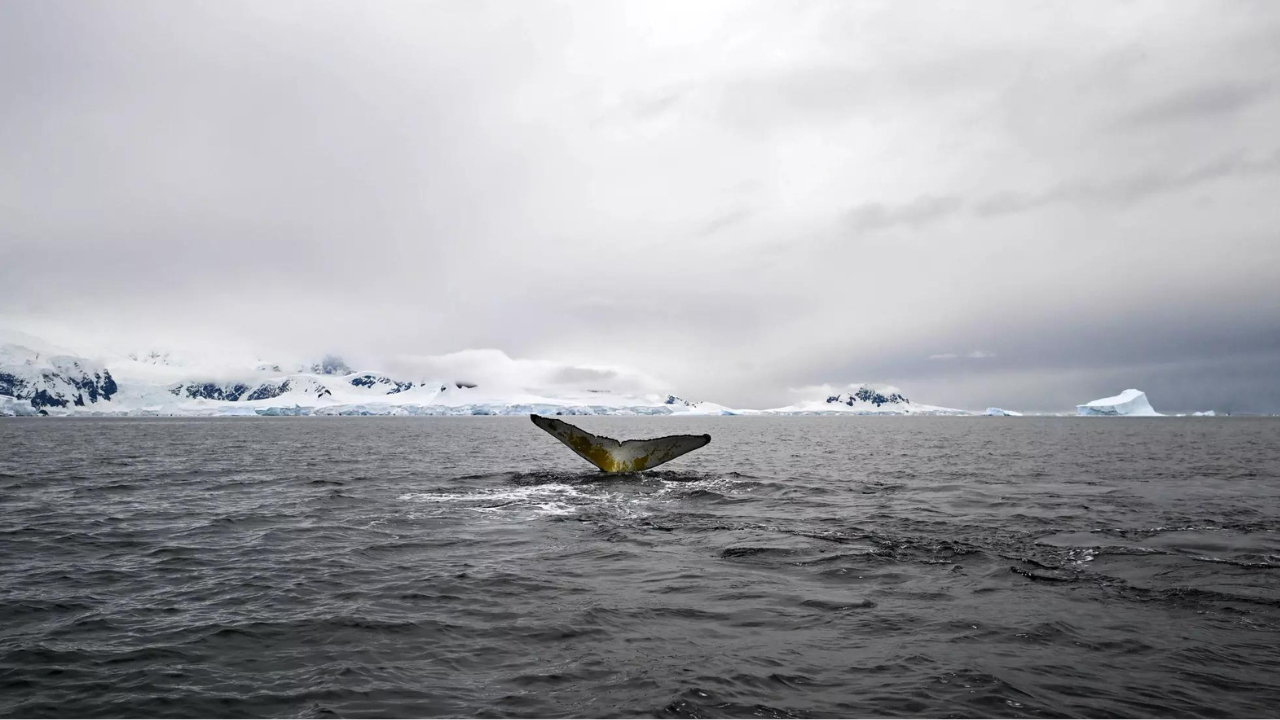NEW DELHI: The escalating global temperatures have raised significant concerns, with scientists at the Concordia research station on the eastern edge of the Antarctic plateau documenting a remarkable phenomenon.
On March 18, 2022, they recorded the highest temperature ever observed at the meteorological center; 38.5 degrees Celsius, well above the seasonal average.
This alarming temperature surge in one of the coldest regions on Earth has left researchers deeply troubled, fearing potential catastrophes. Professor Michael Meredith, head of the British Antarctic Survey, described the event as “simply mind-boggling,” emphasising the potential deadly consequences if such a temperature rise were to occur in the UK.
Professor Martin Siegert from the University of Exeter echoed these concerns, calling the situation “extraordinary” and a genuine cause for worry. Scientists attribute this phenomenon to the increasing influx of warm, humid air from lower latitudes penetrating deep into Antarctica via poleward winds.
Reports of unsettling meteorological abnormalities across the continent in recent years include the unprecedented shrinking of sea ice levels, previously stable for almost a century, and the accelerating loss of mass from glaciers bordering the West Antarctic ice sheet.
These developments have raised concerns that Antarctica, once considered too cold to experience the early effects of global warming, is now succumbing to rising greenhouse gas emissions from human activities. With West Antarctica’s ice sheets and glaciers continuing to retreat, there is a real danger of significant sea level rise in the coming decades.
Warming ocean waters are eroding these structures at their bases, leading to potential complete collapse within a few decades. The disappearance of these ice formations could result in a sea level rise of up to 5 meters, threatening coastal communities worldwide.
Beyond the immediate human impact, there are also serious ecological consequences that could disrupt the entire food chain, warns chemical oceanographer Professor Kate Hendry of the British Antarctic Survey.
On March 18, 2022, they recorded the highest temperature ever observed at the meteorological center; 38.5 degrees Celsius, well above the seasonal average.
This alarming temperature surge in one of the coldest regions on Earth has left researchers deeply troubled, fearing potential catastrophes. Professor Michael Meredith, head of the British Antarctic Survey, described the event as “simply mind-boggling,” emphasising the potential deadly consequences if such a temperature rise were to occur in the UK.
Professor Martin Siegert from the University of Exeter echoed these concerns, calling the situation “extraordinary” and a genuine cause for worry. Scientists attribute this phenomenon to the increasing influx of warm, humid air from lower latitudes penetrating deep into Antarctica via poleward winds.
Reports of unsettling meteorological abnormalities across the continent in recent years include the unprecedented shrinking of sea ice levels, previously stable for almost a century, and the accelerating loss of mass from glaciers bordering the West Antarctic ice sheet.
These developments have raised concerns that Antarctica, once considered too cold to experience the early effects of global warming, is now succumbing to rising greenhouse gas emissions from human activities. With West Antarctica’s ice sheets and glaciers continuing to retreat, there is a real danger of significant sea level rise in the coming decades.
Warming ocean waters are eroding these structures at their bases, leading to potential complete collapse within a few decades. The disappearance of these ice formations could result in a sea level rise of up to 5 meters, threatening coastal communities worldwide.
Beyond the immediate human impact, there are also serious ecological consequences that could disrupt the entire food chain, warns chemical oceanographer Professor Kate Hendry of the British Antarctic Survey.

